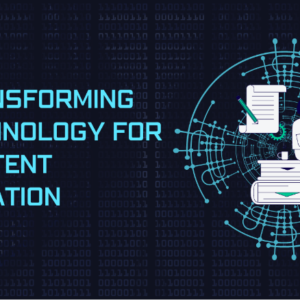This article may contain references to products or services from one or more of our advertisers or partners. We may receive compensation when you click on links to those products or services. Nonetheless, our opinions are our own.
In today’s business landscape, cultivating a team of proficient and knowledgeable employees is paramount for success. As you navigate the complexities of your industry, you’ll find that a skilled workforce not only enhances productivity but also fosters innovation.
Employee training programs are the engines that drive personal and professional development within an organization. These programs come in various forms, each tailored to meet different needs and goals. Understanding the right training approach can significantly impact your company’s growth and your employees’ job satisfaction.
Types of Training Programs
Employee training programs are essential for fostering a capable and adaptable workforce. Each type of training serves a specific purpose, equipping you with the necessary skills and knowledge to excel in your role.
Technical Skill Enhancement
In a rapidly changing technological landscape, continuous learning is essential. Technical skill enhancement programs are tailored to meet the evolving demands of the industry, ensuring employees stay at the forefront of their field.
Some examples of technical skill programs include:
- Learning a new programming language
- Mastering a design tool
- Understanding cutting-edge manufacturing techniques
Employers may offer in-house training, sponsor courses from external providers, or provide access to online learning platforms to support ongoing professional development.
Compliance Training
Compliance training is a critical component of an organization’s risk management strategy. It covers a wide range of topics, including workplace safety, data protection, anti-harassment policies, and industry-specific regulations.
This training is not a one-time event but an ongoing process to ensure all employees are up-to-date with current laws and regulations. Engaging and interactive training methods, such as e-learning modules, workshops, and seminars, are used to emphasize the importance of compliance and ethical behavior in the workplace.
Sales and Customer Service Training
Sales and customer service training programs are essential for any business that wants to thrive in a competitive market. These programs equip employees with the skills needed to understand and meet customer needs, handle objections, and close sales effectively.
Training topics include:
- Communication skills
- Product knowledge
- Customer psychology
- Digital tools for customer engagement
For customer service representatives, the focus is on resolving issues efficiently, managing difficult conversations, and ensuring customer satisfaction. By investing in these training programs, companies can build a loyal customer base and drive revenue growth.
Interviewing Skills Training
Embarking on the journey of mastering interviewing skills can dramatically alter the trajectory of your career. This type of training is not just about learning to answer questions effectively; it’s about weaving a narrative that showcases your strengths, experiences, and ability to contribute to a potential employer’s success.
Interviewing training empowers you with the confidence to articulate your value proposition clearly and compellingly, making you stand out in a sea of candidates. It also equips you with techniques to handle challenging questions gracefully, ensuring that you leave a lasting impression.
Soft Skills Development
In the fabric of the modern workplace, soft skills are the threads that bind teams and projects together. Soft skills development training goes beyond the technical, touching on the human aspects of professional life.
This training covers critical areas such as:
- Effective communication
- Emotional intelligence
- Time management
- Teamwork
By nurturing these skills, you become more adaptable, collaborative, and resilient, qualities that are invaluable in navigating the complexities of today’s work environments.
Conflict Resolution Training
The ability to navigate conflicts effectively is a hallmark of a mature and productive workplace. Conflict resolution training equips you with strategies to manage and resolve disputes constructively. This type of training teaches you to approach conflicts with empathy, listen actively, and find solutions that respect everyone’s needs. By mastering conflict resolution, you contribute to a harmonious work environment where collaboration thrives and productivity soars.
Diversity and Inclusion Training
Creating an environment where everyone feels valued and included is paramount. Diversity and inclusion training plays a pivotal role in achieving this goal. This training educates you on the importance of embracing diversity, understanding unconscious bias, and fostering an inclusive culture.
It’s about opening minds and hearts to the rich tapestry of human experiences and perspectives, paving the way for innovation, creativity, and a sense of belonging. Through this training, you learn to appreciate the strength in diversity and the power of an inclusive approach in driving organizational success.
Leadership Development
Leadership development programs are designed to identify and nurture the next generation of company leaders. These programs often combine formal training in leadership principles with practical experiences, such as leading projects, mentoring, or shadowing senior leaders.
Topics might include:
- Effective communication
- Emotional intelligence
- Decision making
- Change management
The goal is to prepare individuals to take on leadership roles with confidence, inspiring and guiding their teams towards achieving organizational objectives.
Digital Literacy Training
In an era where technology evolves at breakneck speed, staying digitally literate is non-negotiable. Digital literacy training ensures that you are up-to-date with the latest tools and platforms that drive your industry. From basic computer skills to advanced digital tools, this training enhances your ability to work efficiently and innovate. It opens up new possibilities for creativity and problem-solving, ensuring that you remain competitive and relevant in your field.
Conclusion
Each of these training programs offers unique benefits that contribute to your personal and professional development. By embracing these opportunities, you not only enhance your skill set but also prepare yourself for the challenges and opportunities of a dynamic work environment. Whether it’s making a memorable impression in interviews, fostering teamwork, embracing diversity, resolving conflicts, or staying ahead in the digital realm, these trainings pave the way for a fulfilling and successful career.

Reviewed and edited by Albert Fang.
See a typo or want to suggest an edit/revision to the content? Use the contact us form to provide feedback.
At FangWallet, we value editorial integrity and open collaboration in curating quality content for readers to enjoy. Much appreciated for the assist.
Did you like our article and find it insightful? We encourage sharing the article link with family and friends to benefit as well - better yet, sharing on social media. Thank you for the support! 🍉
Article Title: Building a Skilled Workforce: Exploring the Different Types of Employee Training Programs
https://fangwallet.com/2024/02/21/building-a-skilled-workforce-exploring-the-different-types-of-employee-training-programs/The FangWallet Promise
FangWallet is an editorially independent resource - founded on breaking down challenging financial concepts for anyone to understand since 2014. While we adhere to editorial integrity, note that this post may contain references to products from our partners.
The FangWallet promise is always to have your best interest in mind and be transparent and honest about the financial picture.
Become an Insider

Subscribe to get a free daily budget planner printable to help get your money on track!
Make passive money the right way. No spam.
Editorial Disclaimer: The editorial content on this page is not provided by any of the companies mentioned. The opinions expressed here are the author's alone.
The content of this website is for informational purposes only and does not represent investment advice, or an offer or solicitation to buy or sell any security, investment, or product. Investors are encouraged to do their own due diligence, and, if necessary, consult professional advising before making any investment decisions. Investing involves a high degree of risk, and financial losses may occur including the potential loss of principal.
Source Citation References:
+ Inspo












































